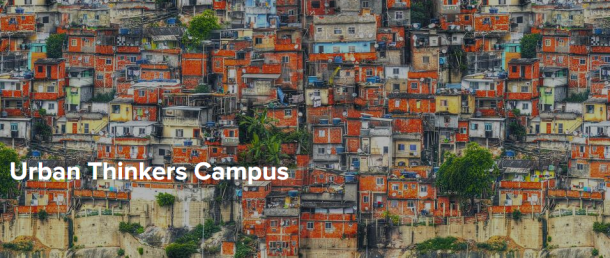INTERNATIONAL
CALENDAR
CALENDAR

Urban Thinkers Campus Planning the megapolis for climate resilience - Europe
The UTC will be organized at the end of March or beginning of April 2022 online (date TBC)
Megacities are today at the center of global production and the social and political transformation of contemporary societies. Their role as important nodes of global networks has expanded. Tertiary activities have developed in poles dedicated to service companies, while industrial production has tended to develop in new strategic centers for the mobilization of specific products. Thus, the megacities ended up representing distinct, often sprawling regional spatial formations, after undergoing a major transformation brought about by this new globalized world economy. Their organization today obeys a principle of polycentrism, their center being extended by new urban extensions linking different poles of centrality capable of attracting economic, social and political activities.
While all megacities share common problems, these problems are posed differently and with varying intensity depending on the context. The objective of this working group is therefore to report on the knowledge derived from the experiences of megacities and to identify specific issues based on existing differences such as the different responses to climate change, adaptation to technological and environmental transition, resilience in complex organizational systems, etc.
Cities and territories must face difficult challenges: climate change, resilience, energy transition, the emergence of new economic models and the digital revolution. The problems faced by megacities are generally amplified and more complex. They represent a considerable challenge for States and local authorities in terms of management and governance as well as planning. As megacities with more than 10 million inhabitants multiply, some are seeking to strengthen decentralization.
Climate change adaptation and mitigation is the biggest challenge for the current century. Crisis represent opportunities to make cities different, to make decision makers aware on innovative ways to plan megacities and to create conditions for a change of paradigm in the way to manage and develop megacities.
The session on Planning the megacities will focus on Climate-resilient planning to fix principles to be adopted by institutions, professionals and all actors in planning megacities.
Anticipated results
The panel discussion will highlight the innovative approach adopted or in preparation by megacities to face climate change through adaptation and mitigation. Planning is a key tool to mobilize actors and territories around a common vision and dedicated tools for the medium and long range.
The discussion will launch an international working group of megacities planning agencies to develop innovative approach based on best practices and shared experiences. It will be managed by MTPA, the global network of metropolitan and territorial planning agencies with the support of UN-Habitat, ICLEI, C40, Metropolis, OECD, World Bank.
SPEAKERS
Moderator: Adeline Fauré, Director of International affairs, FNAU-MTPA
Keynote speaker: Eric Huybrechts, manager of International Affairs Institut Paris Region, FNAU-MTPA
Panel A: Voices of megacities and megaregions
-
Sandrine Barreiro, Director of the Metropolitan Planning mission, Institut Paris Region
-
Prof. Ayşen Erdinçler, Head of the Department of Environmental Protection at Istanbul Metropolitan Municipality
-
Nabi Agzamov, Head of Center of Urban Ecology, Strelka, Moscow
-
Erik Pasveer, Amsterdam director of the strategy of Amsterdam metropolitan region, Eurodelta/Metrex
-
Rickardo Hayatt, Greater London Authority (tbc)
-
Nicolas Gharbi, Cabinet of Madrid mayor
Question & answers
Panel B: Voices of International networks
-
Ahmed Oweida, World bank
-
Tadashi Matsumoto or Oriana Romano, OECD
-
Octavi de la Varga, secretary general of World association Metropolis (tbc)
-
Hélène Chartier, Head of Zero Carbon development, C40
-
Henk Bowman, secretary general Metrex
-
Didier Vancutsem, IFLA Vice-President / Europe
Question & answers
Conclusion: Rafael Forero, Metro-Hub, Policy, Legislation and Governance Section
Urban Practices Branch, UN-Habitat
Lead organizer
FNAU-MTPA, partner of WUC, member of Habitat professional Forum: Brigitte Bariol
Co-organizers
Institut Paris Region, member of the World urban Campaign: Fouad Awada
Other Partners
Metropolis
Metro-Hub of UN-Habitat

